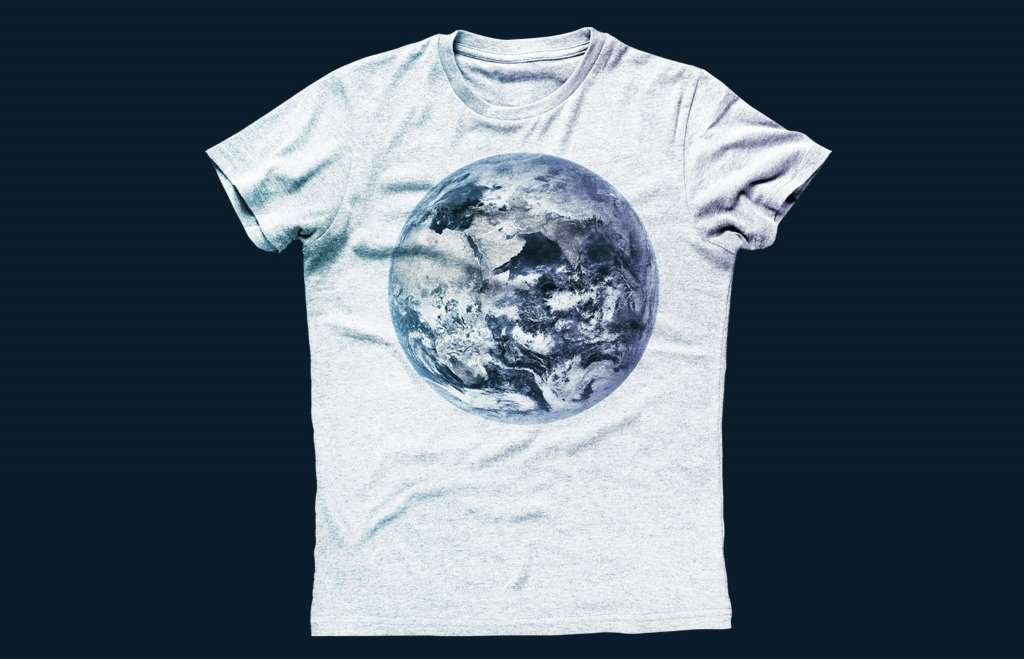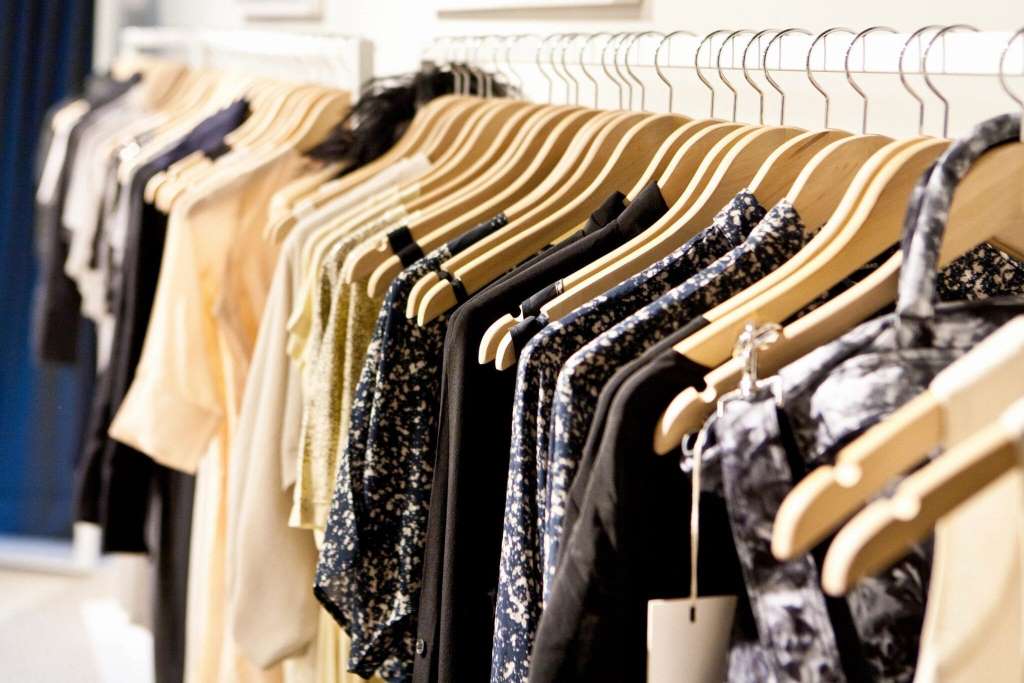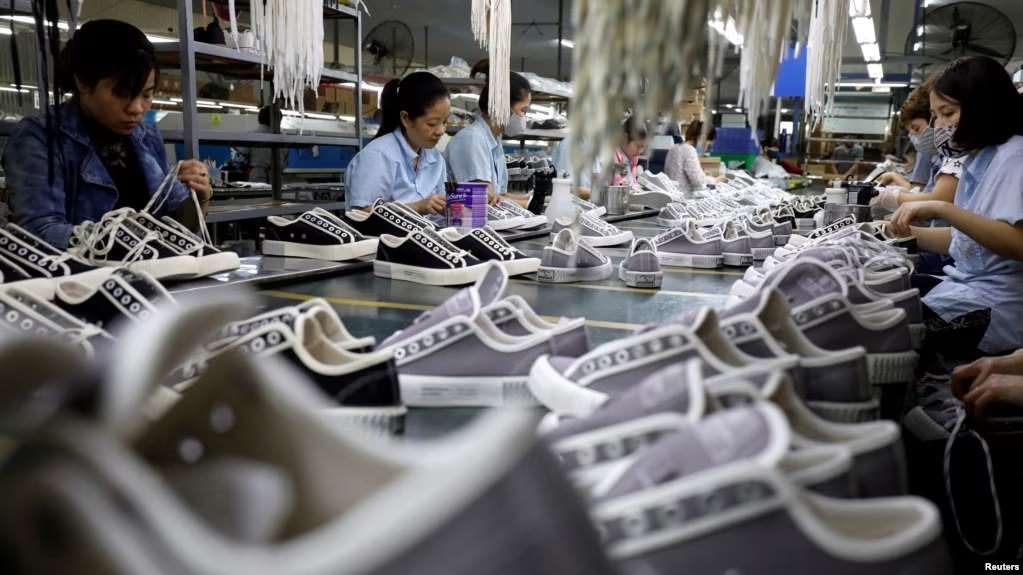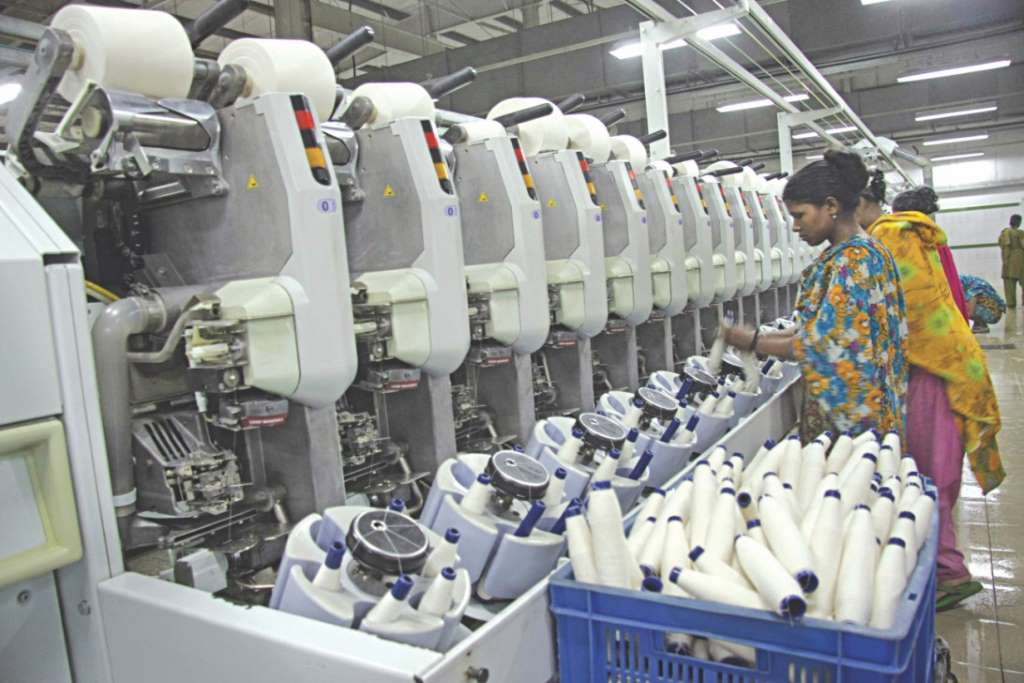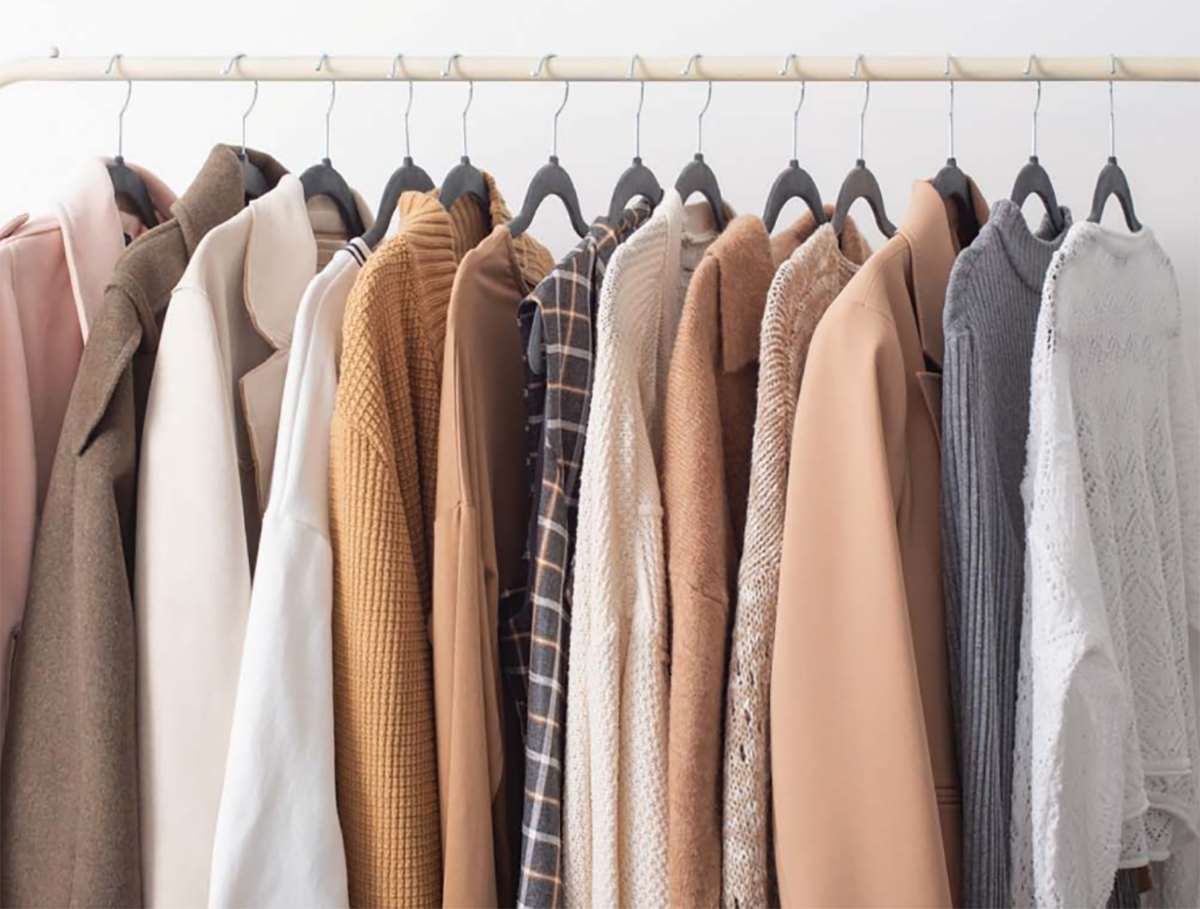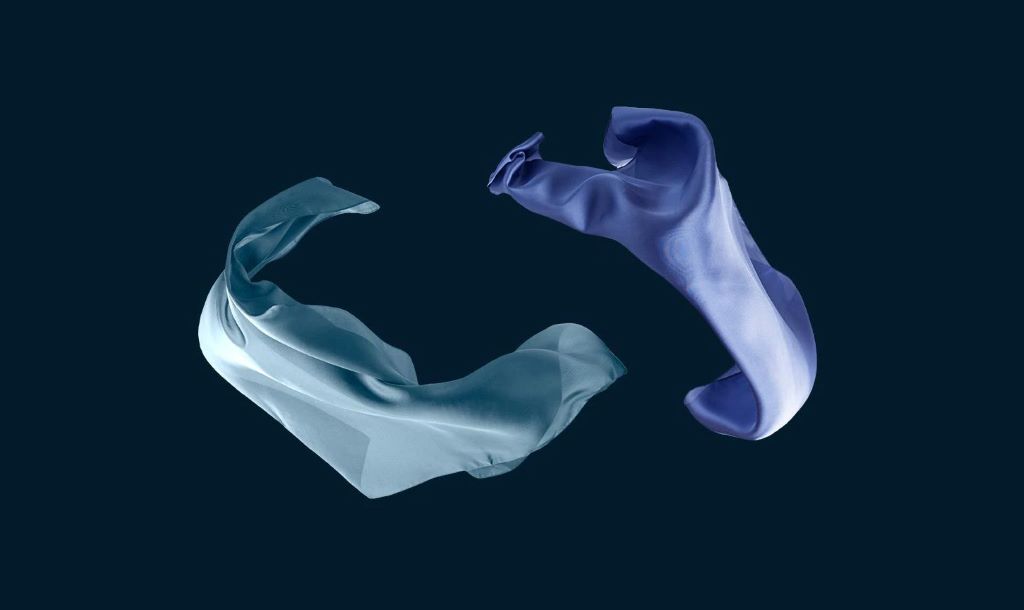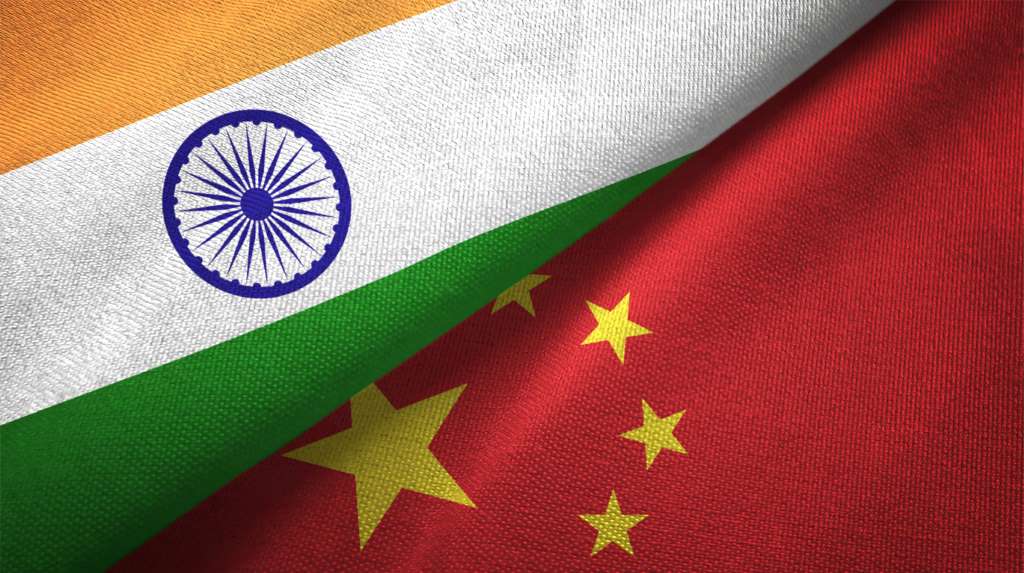FW
German and European manufacturers of sewing and garment technology and machines for processing technical textiles have positive expectations from 4th Texprocess, in Frankfurt from May 9 to 12. As Elgar Straub, Managing Director of VDMA Textile Care Frankfurt said while speaking at the international Texprocess press conference in Frankfurt, 2016 was another successful year for the sector. Sales of German sewing and garment technology increased 15.9 per cent in real terms from January to October compared to last year.
Likewise, orders increased 2.8 per cent. He further said VDMA Textile Care, Fabric and Leather Technologies will be present at this year’s Texprocess for the first time with new names reflecting the sector’s strong international orientation. In addition, all sectors represented in the association find themselves represented in the name viz. manufacturers of sewing and garment technology, shoe and leather technology, laundry and textile cleaning technology as well as machines for processing technical textiles.
Soon to assume office of the US president, Donald Trump had in his election speech vowed that he would trash the much awaited TPP on the very first day he assumes office.
This changed the mood inside the offices of Vietnam's Garment companis. It was then, Than Duc Viet, deputy general director of the state-run textile company, breaking into a rousing speech had observed that if the TPP falls through, his country can always look to Europe or South Korea. After all, Vietnam hasn't been making all these improvements just for the TPP.
Duc was referring to the Trans-Pacific Partnership, the comprehensive 12-nation trade pact that would have given Vietnamese exports easy access to a vast market. Unfortunately for Hanoi, Trump’s vow to scrap the deal on his first day in office, did it in. But while this is a setback for Vietnam's industrial policy, resourceful companies already have chalked out their own plans for going global well underway.
Garment 10, or Garco 10 for short, is a symbol of Vietnamese industry. Revolutionary leader Ho Chi Minh toured its factory on the outskirts of Hanoi in 1959. During the Vietnam War, workers of the company manned anti-aircraft guns on the roof when they were not busy sewing. The company is taking the likely failure of the TPP in stride, confident that the improvements Duc referred to will serve it well.
There was a rise of 31.9 per cent in the exports of cotton, wool, man-made fiber, silk blend, and non-cotton vegetable fiber textile and apparel products from countries like Vietnam and Korea to the US. This was disclosed by the Department of Commerce’s Office of Textiles and Apparel in the US.
The department has also reported that monthly imports of cotton, wool, man-made fiber, silk blend, and non-cotton vegetable fiber textile and apparel products totaled 5.68 billion square meter equivalents in October 2106 up 3.5 per cent from September and 1.4 per cent from October 2015.
During the first nine months of last year, the value of exports of Biella exceeded 1.302 million euro, showing an increase by 2.7 per cent compared to the same period in 2015.Biella is a town and comune in the northern Italian region of Piedmont, the capital of the province of the same name, with a population of 45,016 as of 2014. It is located about 80 kilometres (50 miles) northeast of Turin and 80 kilometres (50 miles) west-northwest of Milan.
Data received are especially positive if they are considered in the whole context. This means that between January and September 2016, registered exports were steady at national level (+0.5) but declined at the regional level for the decrease by 4.9 per cent in Piedmont.
Among Biella’s manufacturing activities, which totally register an increase by 2.4 per cent, there are apparel industry (+6.6 per cent), mechanics industry (+6.6 per cent) and textile products (+1.1 per cent). Exports of yarns are growing by 3.9 per cent. Textile industry represents the first exporting sector for Biella area, with a sum equal to 60.7 per cent of the overall amount.
Alessandro Ciccioni – president of the Biella and Vercelli Chamber of Commerce – stated that the growth within EU was strongly positive. However, it was important to highlight that the difficulty within export sector was still present outside EU, especially in those countries that traditionally were important and strong as outlet markets. Since then, the Chambers of Commerce has committed to foster the opening toward foreign markets of local companies with special attention for small and medium enterprises’ needs. Going ahead he said that currently through the ongoing Chambers’ reform, Biella should commit itself to educate companies (especially the small ones) to face internationalisation, leaving to other appointed bodies boosting activities on foreign markets, in a period in which the situations on international exchanges leave lots of issues to sort out.
A Bangladesh textile summit will kick off from February 16. It will focus on sustainability in the textile industry. The two-day programme will analyse the Bangladesh textile industry to undertake various corporate social responsibilities. The summit is a platform to connect with textile industry peers, existing customers and potential clients.
The summit aims at analysing the Bangladesh textile industry in order to get a better understanding of its textile market and avoid the risks while finding opportunities. The summit is also platform for international buyers to learn the latest sourcing strategies and trends in Bangladesh textile industry and for suppliers it is a way to find the solution to the problems they face while investing in factories. Meanwhile, it is also an opportunity for exchanges, communication and mutual assistance.
Experts from various organisations including Bangladesh Garment Manufacturers and Exporters Association, Bangladesh Institute of Development Studies and Center for Policy Dialogue will be speaking at the programme. These speakers will focus on several issues such as latest development situation and prospects of the textile industry in Bangladesh, best solution for textile sustainability in Bangladesh and ethical sourcing, buyers’ practice to the suppliers’ corporate social responsibility audit in Bangladesh among others. The programme will also host a panel discussion on sustainable sourcing and developing trends in Bangladesh textile market.
Amid weaker demand in China, prices of Benzene soared across regions in December but later showed moderation. In US, spot benzene moved up to 16-month high due to rising Asian numbers, a strong derivative styrene market and low benzene fixtures to the US. In Europe, benzene spot moved up during the month. Asian marker, FOB Korea surged 18% in December and declined 5.9 per cent YoY. US spot prices rose 16.7 per cent while it fell 7.3 per cent YoY as compared to previous year’s average. European spot was up 22.6 per cent on the month while it fell 3.5 per cent YoY.
On the back of moderate demand and range‐bound benzene, prices of caprolactum continued to surge. Spot prices hit a 2-year high during the month on a CFR China and CFR Taiwan basis because of limited supply, feedstock benzene prices, higher domestic Chinese prices. Asian caprolactam spot prices in December were up 27.5% from last month while it declined 14.4 per cent YoY.
In line with surging caprolactum, prices of Nylon chip in December skyrocketed, given high crude oil and benzene values. Producers operated cautiously, leading to tight supply and low inventory. Converters trimmed operation and made rigid procurement. Coupled with healthy demand for engineering plastics/film grades, nylon chip market was bolstered a bit. Offers for Taiwan-origin chips were up 26.5 per cent from last month. In China, bright conventional spinning nylon-6 chips were up 30.3 per cent from November while semi-dull chips rose 30.1 per cent on the month.
Given higher raw material cost which in turn eroded margins, prices of Nylon filament yarn soared in December. Thus, suppliers trimmed run rates to below 70 per cent with cautious mentality. Demand for warp‐knitting, weaving and AJ covering sectors witnessed smooth sales while circular‐knitting mills and lacing mills ran at lower rate. In China, semi-dull FDY70D/24F was up US cents 59 a kg from previous month while FDY40D were US cents 64 on the month.
Mafatlal Industries wants to have school uniform sales of Rs 1000 crores by 2020-21. The company has two manufacturing units in Gujarat to cater to this segment. Over the last two years, it has invested close to Rs 300 crores on capex in these units. In the uniform area, corporate uniforms account for 70 per cent of Mafatlal’s sales but this is expected to come down to 60 per cent as sales of school uniforms are showing a rise.
Mafatlal Industries makes ten crore meters of garments a year of which school and corporate uniforms together comprise about 50 per cent. The market for Indian uniform garments is pegged at Rs 12,000 crores and it is growing by 10 per cent per annum. The uniform garment sector is also witnessing a 10 to 15 per cent year-on-year growth. School uniforms are replaced every two or three years, but corporate and institutions take a longer time.
Mafatlal Industries, the flagship company of the Arvind Mafatlal Group, is expected to close 2016-17 with a sales income of Rs 625 crores against Rs 545 crores registered in the corresponding year-ago period. Apart from school and corporate uniforms, it is into hospitality uniforms, medical uniforms, bed linens, bath towels, specialty fabrics, denim, men’s wear and women’s wear.
According to estimates presented at Pitti Uomo 91 by Sistema Moda Italia (SMI), the Italian fashion and textile industry federation, Italian menswear is expected to end 2016 with a modest 0.9 per cent revenue growth reaching almost €9 billion. In 2015, its revenue rose by 1.4 per cent. Above all, the estimate reflects a slow-down in export sales while the decrease in the Italian domestic demand's rate of decline seems to have chiefly benefited those businesses that are not exclusively focused on manufacturing. However, Italian manufacturing output in 2016, net of the sale of imported goods, is expected to post a marked recovery by rising 1.2 per cent, compared to a 3.5 per cent shortfall in 2015.
Over the same period, Italian export sales are forecast to grow by 1.9 per cent for a value of nearly €5.8 billion. This increase is lower than the 2.3 per cent rise recorded in 2015 chiefly owing to the performance in emerging countries as well as to the weaker-than-expected trend of USA domestic demand.
Imports on the other hand are forecasted to buck the trend and fall by 0.5 per cent, for a total value just below the €4 billion mark. Geographically, exports and imports to/from the EU are both reportedly growing (+3.9 per cent) while conversely the business with non-EU countries is expected to decline by 0.9 per cent in both directions.
A carpet cluster and a hosiery cluster will come up in Haryana. Carpet weaving calls for a high degree of skill and dexterity. A carpet consists of dyed pile yarns; a primary backing in which the yarns are sewn; a secondary backing that adds strength to the carpet; adhesive that binds the primary and secondary backings; and, in most cases, a cushion laid underneath the carpet to give it a softer, more luxurious feel.
Haryana wants to boost hosiery goods manufacturing in the state. The state will set up a hosiery cluster in Sirsa while the Centre would initially spend six crores to develop the cluster. A building will be constructed in the village. As a group about 120 people of the village would make sweaters, shirts and uniforms. Modern machines will be installed and the textiles would be marketed through tenders and other mediums which would prove beneficial for people working in this industry. All beneficiaries of the scheme belong to scheduled castes and backward classes and it is the first group of its kind in the country. Sirsa produces 40 per cent of the total cotton produced in the state and this area is famous as a cotton belt in the country.
German and European manufacturers of sewing and Garment technology and machines for processing technical textiles have positive expectations of the leading trade fair Texprocess that will open its doors in Frankfurt for the fourth time from May 9 to 12.
Elgar Straub, Managing Director of VDMA Textile Care Frankfurt said that 2016 was another successful year for the sector. Sales of German manufacturers of sewing and Garment technology increased by 15.9 per cent in real terms from January to October compared to that of last year.
Likewise, incoming orders increased by 2.8 per cent. He was speaking on the occasion of the international Texprocess press conference in Frankfurt. He further said that VDMA Textile Care, Fabric and Leather Technologies will present itself at this year’s Texprocess for the first time with their new names reflecting the sector’s strong international orientation. In addition, all sectors represented in the association find themselves represented in the name viz. manufacturers of Sewing and Garment technology, Shoe and Leather technology, Laundry and Textile cleaning technology as well as machines for processing Technical Textiles.


